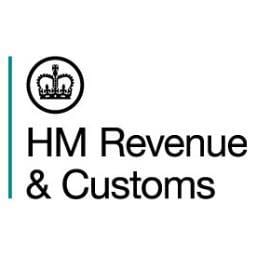HMRC clarifies changes to non-dom status
Back in March when everyone was pondering the ramifications of George Osborne’s eventful Summer Budget, we outlined the key changes to non-dom status in an article for our overseas clients. Then the details were hazy, and there were more questions than answers.
Now, the government has released a consultation which we hope will provide answers to some of those questions. Although further clarification will be needed ahead of the April 2017 implementation date, statements from Her Majesty’s Revenue and Customs (HMRC) should help clear up a few of the knottier points for our clients.
‘Deemed-doms’
As outlined in the Budget, non-doms who have been resident in the UK for 15 out of the past 20 years will become deemed-doms for tax purposes after 5 April 2017. From this date, they will be subject to income tax, inheritance tax and capital gains tax on a worldwide basis.
HMRC have confirmed that individuals will need to determine what constitutes residency by referring to the rules for the relevant years (bearing in mind the 2013 rule-change). Importantly, years before the age of 18 will count towards your total residency period.
Anyone affected should assess their residence status and explore their options ahead of the deadline.
HMRC have also confirmed that deemed-doms will be able to rebase their non-UK assets using the market value at that date (meaning any gain accruing before that date will be protected from UK capital gains tax on a later disposal). This is subject to certain restrictions:
- The rebasing will apply to directly held assets only (and not, for example, to those held within trusts or companies. Trustees should consider rebasing trust assets, for example by selling and re-acquiring marketable assets or through ‘internal’ transactions).
- It will only be available to individuals who have previously paid the remittance basis charge in any year before April 2017.
- It applies only to those who become deemed-doms under the 15/20 year rule from 5 April 2017 – it will not apply to those becoming deemed-doms on a later date.
Changes to non-dom status
HMRC have confirmed they will introduce a one year ‘window of opportunity’ from April 2017 during which non-doms will be able to rearrange their offshore mixed funds and separate them into their constituent parts (provided these can be identified).
This will mean, for instance, that they will be able to move their clean capital, foreign income and foreign gains into separate accounts, and then remit from those accounts as they wish.
This treatment will apply only to mixed funds deposited in bank and similar accounts, rather than to assets. However, an individual could sell an overseas asset during the transitional period and separate the sales proceeds if required.
Unlike rebasing, this relief is not restricted to those non-doms who become deemed domiciled in April 2017 under the 15/20 rule. However, it will not apply to individuals born in the UK with a UK domicile of origin.
Offshore trusts & structures
It was initially announced that the income and gains from offshore trusts created before individual became a deemed-dom, would not be taxed. It was not clear, however, how benefits and distributions would be handled.
HMRC have now proposed special tax rules for these cases:
- Foreign assets held by non-UK trusts will not be subject to UK inheritance tax, with the notable exception of UK residential property.
- Those who become deemed-doms under the 15/20 rule will receive ‘settler tax protection’, meaning the trust will not be subject to UK tax until a benefit is received either by the deemed-dom settler or their immediate family.
However, UK residential property will be subject to inheritance tax whether directly or indirectly held, and currently there is no tax relief to help taxpayers wind up any non-UK property holding structures. Individuals thinking about extracting a property from such a structure should move quickly.









